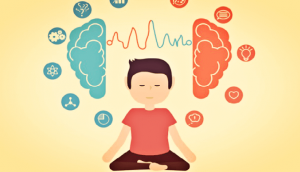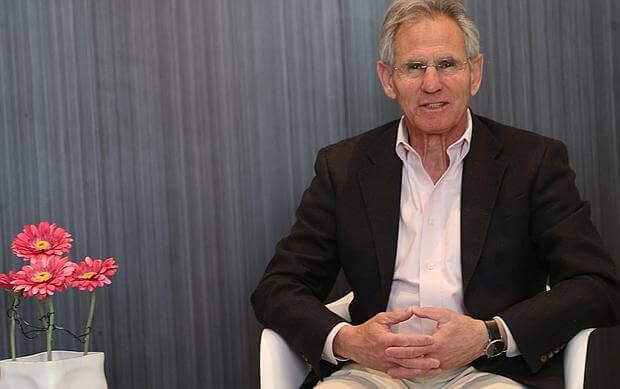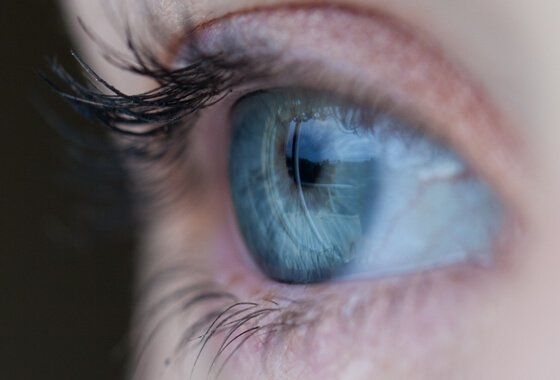What Is Mindfulness? Focused Attention in Our Busy World


Written and verified by the psychologist Valeria Sabater
Being mindful of what is happening in the here and now isn’t an easy task. After all, we live in a society that programs its happiness for the weekend or vacation time. We’re surrounded by stimuli, notifications, and to-do lists. Fortunately, integrating the principles of mindfulness into your life could make very positive, rather amazing changes in your life.
A typical example: Alberto and mindfulness
Alberto is a sales executive at a well-known business. After nearly twenty years of hard, efficient work, he’s had to ask for leave because of a back injury. They performed surgery and he’s been in recovery for four long months. But he’s still suffering from intense pain, and even though he swims every day he isn’t getting any better. He doesn’t feel validated or safe.
“It’s impossible to become someone else. Our only hope lies in being more fully ourselves.”
-Jon Kabat-Zinn-
A coworker has recommended he go to mindfulness classes. When he hears the word, Alberto can’t help but laugh, because he’s always seen these kinds of things as a bit useless, unscientific, just a trend for people who don’t know what to do with their time.
And he doesn’t see himself sitting in lotus position meditating with the palms of his hands together. But his friend persists. “You won’t lose anything by trying it out for a week.”
Well after his first 7-day experience, Alberto has now spent two years practicing mindfulness. At 49 years old he has learned to live his life more calmly, he has less stress and muscle tension, and most importantly, he doesn’t feel as much pain in his back and has gone back to work.
The biggest thing he’s noticed during the time he’s spent applying mindfulness to his daily life is that he sees life differently. He feels like he has somehow pushed the “restart” button on his life.
Starting with mindfulness
To sum up, Alberto’s case is a normal example. Most people come to mindfulness by accident or out of curiosity Maybe it was out of necessity or because friends or acquaintances recommended it. And usually people don’t really know what will happen, if it will be useful. They don’t know what kind of changes might come from this kind of meditation.
To learn more about mindfulness, read on.

Who “invented” mindfulness? Is there any scientific evidence?
Nobody invented mindfulness. It actually developed from the ancient, traditional Zen and Vipassana meditation practices. It’s worth pointing out that at its origins, this combination of techniques and exercises didn’t intend to just make a person feel better. What it tried to do was encourage personal liberation… so there was a spiritual component.
“When you connect with something, this connection will immediately give you a meaning for life.””
-Jon Kabat-Zinn-
And then came the 70’s, when Jon Kabat-Zinn, a nuclear biologist, professor emeritus of medicine, and founder of the Stress Reduction Clinic at the University of Massachusetts, started to promote mindfulness. He’d been practicing Zen meditation since he was 20. Ever since he has tirelessly been investigating and scientifically demonstrating the health benefits.

Since then, thousands of people all over the world have completed his program, MBSR (Mindfulness-Based Stress Reduction). It has helped them fight chronic pain, reduce their anxiety and stress, and improve sleep problems and depression.
On top of that, ever since Professor Kabat-Zinn published his first scientific article on the discipline in 1980, there are between 200 and 800 articles published every year supporting the benefits of mindfulness.
Currently, the MBSR (Mindfulness-Based Stress Reduction) and MBCT (Mindfulness-Based Cognitive Therapy) programs are the two mindfulness-based therapies with the most scientific evidence.
Attention is a muscle we need to strengthen
Daniel Goleman once said that attention is a muscle we need to work on every day to be more receptive to things around us and inside us.
This Buddhist-rooted practice, over 2,500 years old, didn’t come to the West by accident. It’s because scientists like Dr. Kabat Zinn understand that our society is demanding and stressful. It forces us to speed up and torments us with headaches, anxiety, and endless to-do’s.
We barely squeeze a half hour out of our day to eat lunch and we go to bed after midnight, after one last glance at our phone. And then we only end up sleeping a few hours. Morning comes again with all its hurrying, a rushed breakfast, and almost missing the bus to work. Meanwhile, things come to our mind like, “I’m missing something,” “I feel empty,” or even worse, “It’s all pointless.”

The scientific studies are there to remind us of something important: over two thousand years ago the Buddhists started using mindfulness and developing it like a muscle. Today, it not only lowers our stress and anxiety but also makes us more open, creative, and emotionally strong. It has helped people for a long time to enjoy what they do, even the mundane things.
What mindfulness is and is not
You probably have preconceived ideas about mindfulness. Before you form a biased or negative opinion about something, it’s always a good idea to get informed and compare information and different sources to get a more realistic perspective of things.
Sometimes things we rejected at first end up being valuable tools we can use to improve our lives. Mindfulness may be one of those tools. That’s why it’s important to define exactly what “mindfulness” is and isn’t.
- Meditation isn’t a religion. Mindfulness is just a mental training technique.
- You don’t have to sit on the floor with your legs crossed in the classic lotus position. Although most articles and magazines “sell” that idea, the truth is that you can practice mindfulness in almost any place, position, or time. You can even do it while you exercise or eat.
- Practicing mindfulness won’t take up all your time. It’s not something you have to practice from 5 to 7 at night. Once you’ve gotten control over the meditation patterns, you can do it at any time of the day, no need to pay for classes. Mindfulness really is a habit, a strategy for improving your life.
- Meditation isn’t complicated. There’s also no right way to do it. What it’s really about is training your mind every day to focus on the present.
- Mindfulness isn’t any kind of miracle or secret to happiness. It won’t make you successful overnight or fulfill you in and of itself. Mindfulness is a path, a strategy, a way of developing a deeper, more compassionate awareness of the things around us. That way you can reflect on yourself and what’s around you.
What mindfulness can do for you
Mindfulness is all about practice. But we should still be clear about one thing: you can’t develop mindfulness in a week or two; you’ll need practice and willpower. We’re so distracted because it’s so hard to stop the rush of stimuli outside and thoughts inside. That’s why you need a bit of patience. But once you figure out your strategy, you’ll notice the following things in your life.
“Don’t try to push out your thoughts. Give them space, observe them, and let them go.”
-Jon Kabat-Zinn-
You’ll become conscious of your emotions
Some of the best effects of mindfulness are improved emotional self-regulation, self-knowledge, and self-control. Little by little you’ll become the lord and master of your internal universe. And then you’ll be able to grow in introspection, openness, reflection, and self-acceptance.
You improve your working memory
Working memory allows you to temporarily store new information in your brain so you can later recall and process it. It is a basic, essential system in our daily lives, whether for work or to see ourselves as more integrated into the present.
It prevents symptoms of depression
Depression almost always leads to negative, exhausting cycles of thought that trap a person in a dark hole. It can be very destructive. But if you start to train yourself in mindfulness, many minor depression symptoms will lose their strength.
You’ll quickly see other options, regulate your emotions better, free yourself from the mess of the past, stop expecting negative things in your future, and get rooted in the present, so full of opportunity.

You’ll become more resilient
Resilience is the wonderful ability to come out of a setback even stronger. You can become more resilient through mindfulness. As many different studies indicate, mindfulness improves connectivity and activity in a region of the brain called the anterior cingulate cortex. It improves emotional self-regulation and helps you learn from your past to help you make better decisions in the future.
You’ll be less stressed
Do you know what brain structure takes control every time you feel fear or a desire to escape? It’s the amygdala. This area of our brain is key when it comes to responding to stress. In fact, overstimulation of the amygdala often leads to depression and anxiety disorders.
But the good news is that consistent mindfulness practice helps reduce the size of your amygdala and lower its activity. It’s not something you’ll notice in just a month or two. But it will happen with continuous, daily practice. Eventually your brain will start to experience powerful changes. With these changes, it will be able to respond better to stressful situations and both your mental and physical health will improve.

The good news about mindfulness
Maybe you still haven’t given mindfulness a chance, seeing it as something that’s just not right for you or your way of life… How am I going to sit down for an hour with all the things I have to do?
Well remember that you don’t necessarily practice mindfulness with your legs crossed, eyes closed, or hands clasped. You’re not going to use your body; you’re going to use your mind, your brain. The goal is to “train your attention.”
It can have such an impact on your life that Jon Kabat-Zinn himself is fighting for meditation to an additional focus in traditional medicine. He says it has the power to give health.
It doesn’t cost anything, and it could do so much…
Bibliography
-John Kabat-Zinn (2006) Mindfulness for Beginners, Louisville, CO: Sounds True
-Bhante Henepola Gunaratana (1992) Mindfulness in Plain English, Charlottesville, VA: The University of Virginia
-Thich Nhat Hanh (2014) The Miracle of Mindfulness, Boston, MA: Beacon Press
-Javier García Campayo (2014) Mindfulness y ciencia, Alianza Editorial
Being mindful of what is happening in the here and now isn’t an easy task. After all, we live in a society that programs its happiness for the weekend or vacation time. We’re surrounded by stimuli, notifications, and to-do lists. Fortunately, integrating the principles of mindfulness into your life could make very positive, rather amazing changes in your life.
A typical example: Alberto and mindfulness
Alberto is a sales executive at a well-known business. After nearly twenty years of hard, efficient work, he’s had to ask for leave because of a back injury. They performed surgery and he’s been in recovery for four long months. But he’s still suffering from intense pain, and even though he swims every day he isn’t getting any better. He doesn’t feel validated or safe.
“It’s impossible to become someone else. Our only hope lies in being more fully ourselves.”
-Jon Kabat-Zinn-
A coworker has recommended he go to mindfulness classes. When he hears the word, Alberto can’t help but laugh, because he’s always seen these kinds of things as a bit useless, unscientific, just a trend for people who don’t know what to do with their time.
And he doesn’t see himself sitting in lotus position meditating with the palms of his hands together. But his friend persists. “You won’t lose anything by trying it out for a week.”
Well after his first 7-day experience, Alberto has now spent two years practicing mindfulness. At 49 years old he has learned to live his life more calmly, he has less stress and muscle tension, and most importantly, he doesn’t feel as much pain in his back and has gone back to work.
The biggest thing he’s noticed during the time he’s spent applying mindfulness to his daily life is that he sees life differently. He feels like he has somehow pushed the “restart” button on his life.
Starting with mindfulness
To sum up, Alberto’s case is a normal example. Most people come to mindfulness by accident or out of curiosity Maybe it was out of necessity or because friends or acquaintances recommended it. And usually people don’t really know what will happen, if it will be useful. They don’t know what kind of changes might come from this kind of meditation.
To learn more about mindfulness, read on.

Who “invented” mindfulness? Is there any scientific evidence?
Nobody invented mindfulness. It actually developed from the ancient, traditional Zen and Vipassana meditation practices. It’s worth pointing out that at its origins, this combination of techniques and exercises didn’t intend to just make a person feel better. What it tried to do was encourage personal liberation… so there was a spiritual component.
“When you connect with something, this connection will immediately give you a meaning for life.””
-Jon Kabat-Zinn-
And then came the 70’s, when Jon Kabat-Zinn, a nuclear biologist, professor emeritus of medicine, and founder of the Stress Reduction Clinic at the University of Massachusetts, started to promote mindfulness. He’d been practicing Zen meditation since he was 20. Ever since he has tirelessly been investigating and scientifically demonstrating the health benefits.

Since then, thousands of people all over the world have completed his program, MBSR (Mindfulness-Based Stress Reduction). It has helped them fight chronic pain, reduce their anxiety and stress, and improve sleep problems and depression.
On top of that, ever since Professor Kabat-Zinn published his first scientific article on the discipline in 1980, there are between 200 and 800 articles published every year supporting the benefits of mindfulness.
Currently, the MBSR (Mindfulness-Based Stress Reduction) and MBCT (Mindfulness-Based Cognitive Therapy) programs are the two mindfulness-based therapies with the most scientific evidence.
Attention is a muscle we need to strengthen
Daniel Goleman once said that attention is a muscle we need to work on every day to be more receptive to things around us and inside us.
This Buddhist-rooted practice, over 2,500 years old, didn’t come to the West by accident. It’s because scientists like Dr. Kabat Zinn understand that our society is demanding and stressful. It forces us to speed up and torments us with headaches, anxiety, and endless to-do’s.
We barely squeeze a half hour out of our day to eat lunch and we go to bed after midnight, after one last glance at our phone. And then we only end up sleeping a few hours. Morning comes again with all its hurrying, a rushed breakfast, and almost missing the bus to work. Meanwhile, things come to our mind like, “I’m missing something,” “I feel empty,” or even worse, “It’s all pointless.”

The scientific studies are there to remind us of something important: over two thousand years ago the Buddhists started using mindfulness and developing it like a muscle. Today, it not only lowers our stress and anxiety but also makes us more open, creative, and emotionally strong. It has helped people for a long time to enjoy what they do, even the mundane things.
What mindfulness is and is not
You probably have preconceived ideas about mindfulness. Before you form a biased or negative opinion about something, it’s always a good idea to get informed and compare information and different sources to get a more realistic perspective of things.
Sometimes things we rejected at first end up being valuable tools we can use to improve our lives. Mindfulness may be one of those tools. That’s why it’s important to define exactly what “mindfulness” is and isn’t.
- Meditation isn’t a religion. Mindfulness is just a mental training technique.
- You don’t have to sit on the floor with your legs crossed in the classic lotus position. Although most articles and magazines “sell” that idea, the truth is that you can practice mindfulness in almost any place, position, or time. You can even do it while you exercise or eat.
- Practicing mindfulness won’t take up all your time. It’s not something you have to practice from 5 to 7 at night. Once you’ve gotten control over the meditation patterns, you can do it at any time of the day, no need to pay for classes. Mindfulness really is a habit, a strategy for improving your life.
- Meditation isn’t complicated. There’s also no right way to do it. What it’s really about is training your mind every day to focus on the present.
- Mindfulness isn’t any kind of miracle or secret to happiness. It won’t make you successful overnight or fulfill you in and of itself. Mindfulness is a path, a strategy, a way of developing a deeper, more compassionate awareness of the things around us. That way you can reflect on yourself and what’s around you.
What mindfulness can do for you
Mindfulness is all about practice. But we should still be clear about one thing: you can’t develop mindfulness in a week or two; you’ll need practice and willpower. We’re so distracted because it’s so hard to stop the rush of stimuli outside and thoughts inside. That’s why you need a bit of patience. But once you figure out your strategy, you’ll notice the following things in your life.
“Don’t try to push out your thoughts. Give them space, observe them, and let them go.”
-Jon Kabat-Zinn-
You’ll become conscious of your emotions
Some of the best effects of mindfulness are improved emotional self-regulation, self-knowledge, and self-control. Little by little you’ll become the lord and master of your internal universe. And then you’ll be able to grow in introspection, openness, reflection, and self-acceptance.
You improve your working memory
Working memory allows you to temporarily store new information in your brain so you can later recall and process it. It is a basic, essential system in our daily lives, whether for work or to see ourselves as more integrated into the present.
It prevents symptoms of depression
Depression almost always leads to negative, exhausting cycles of thought that trap a person in a dark hole. It can be very destructive. But if you start to train yourself in mindfulness, many minor depression symptoms will lose their strength.
You’ll quickly see other options, regulate your emotions better, free yourself from the mess of the past, stop expecting negative things in your future, and get rooted in the present, so full of opportunity.

You’ll become more resilient
Resilience is the wonderful ability to come out of a setback even stronger. You can become more resilient through mindfulness. As many different studies indicate, mindfulness improves connectivity and activity in a region of the brain called the anterior cingulate cortex. It improves emotional self-regulation and helps you learn from your past to help you make better decisions in the future.
You’ll be less stressed
Do you know what brain structure takes control every time you feel fear or a desire to escape? It’s the amygdala. This area of our brain is key when it comes to responding to stress. In fact, overstimulation of the amygdala often leads to depression and anxiety disorders.
But the good news is that consistent mindfulness practice helps reduce the size of your amygdala and lower its activity. It’s not something you’ll notice in just a month or two. But it will happen with continuous, daily practice. Eventually your brain will start to experience powerful changes. With these changes, it will be able to respond better to stressful situations and both your mental and physical health will improve.

The good news about mindfulness
Maybe you still haven’t given mindfulness a chance, seeing it as something that’s just not right for you or your way of life… How am I going to sit down for an hour with all the things I have to do?
Well remember that you don’t necessarily practice mindfulness with your legs crossed, eyes closed, or hands clasped. You’re not going to use your body; you’re going to use your mind, your brain. The goal is to “train your attention.”
It can have such an impact on your life that Jon Kabat-Zinn himself is fighting for meditation to an additional focus in traditional medicine. He says it has the power to give health.
It doesn’t cost anything, and it could do so much…
Bibliography
-John Kabat-Zinn (2006) Mindfulness for Beginners, Louisville, CO: Sounds True
-Bhante Henepola Gunaratana (1992) Mindfulness in Plain English, Charlottesville, VA: The University of Virginia
-Thich Nhat Hanh (2014) The Miracle of Mindfulness, Boston, MA: Beacon Press
-Javier García Campayo (2014) Mindfulness y ciencia, Alianza Editorial
This text is provided for informational purposes only and does not replace consultation with a professional. If in doubt, consult your specialist.







